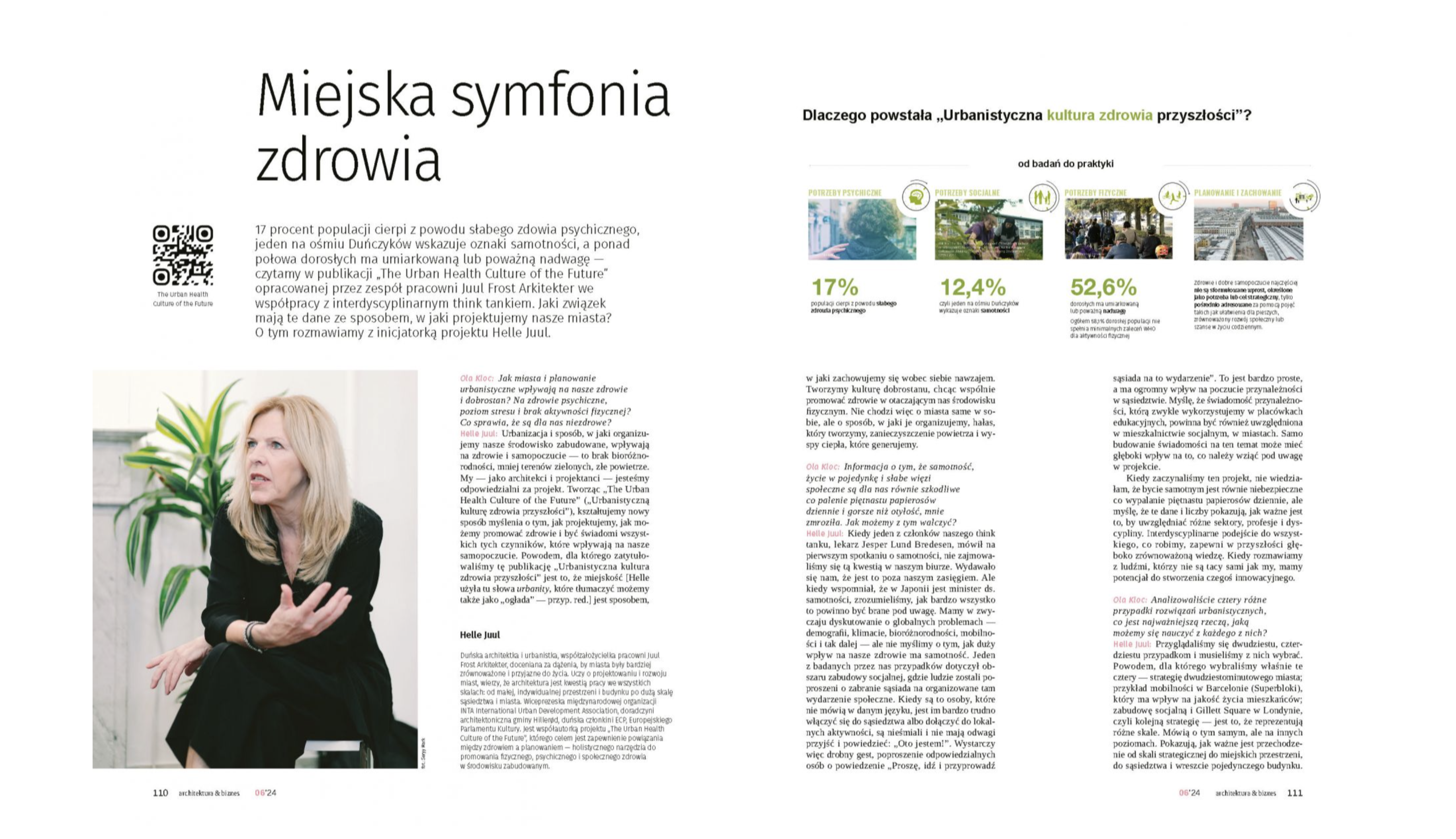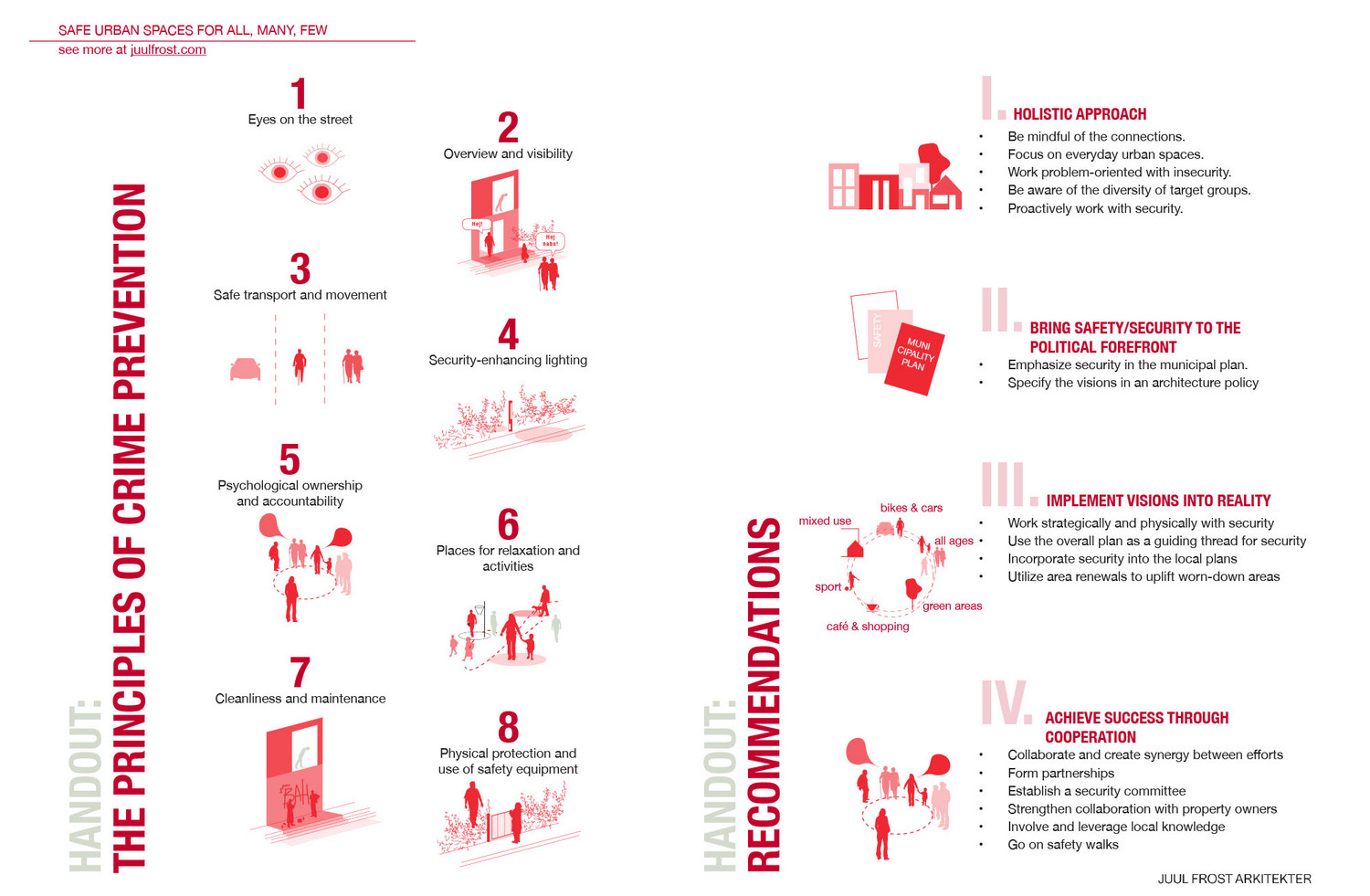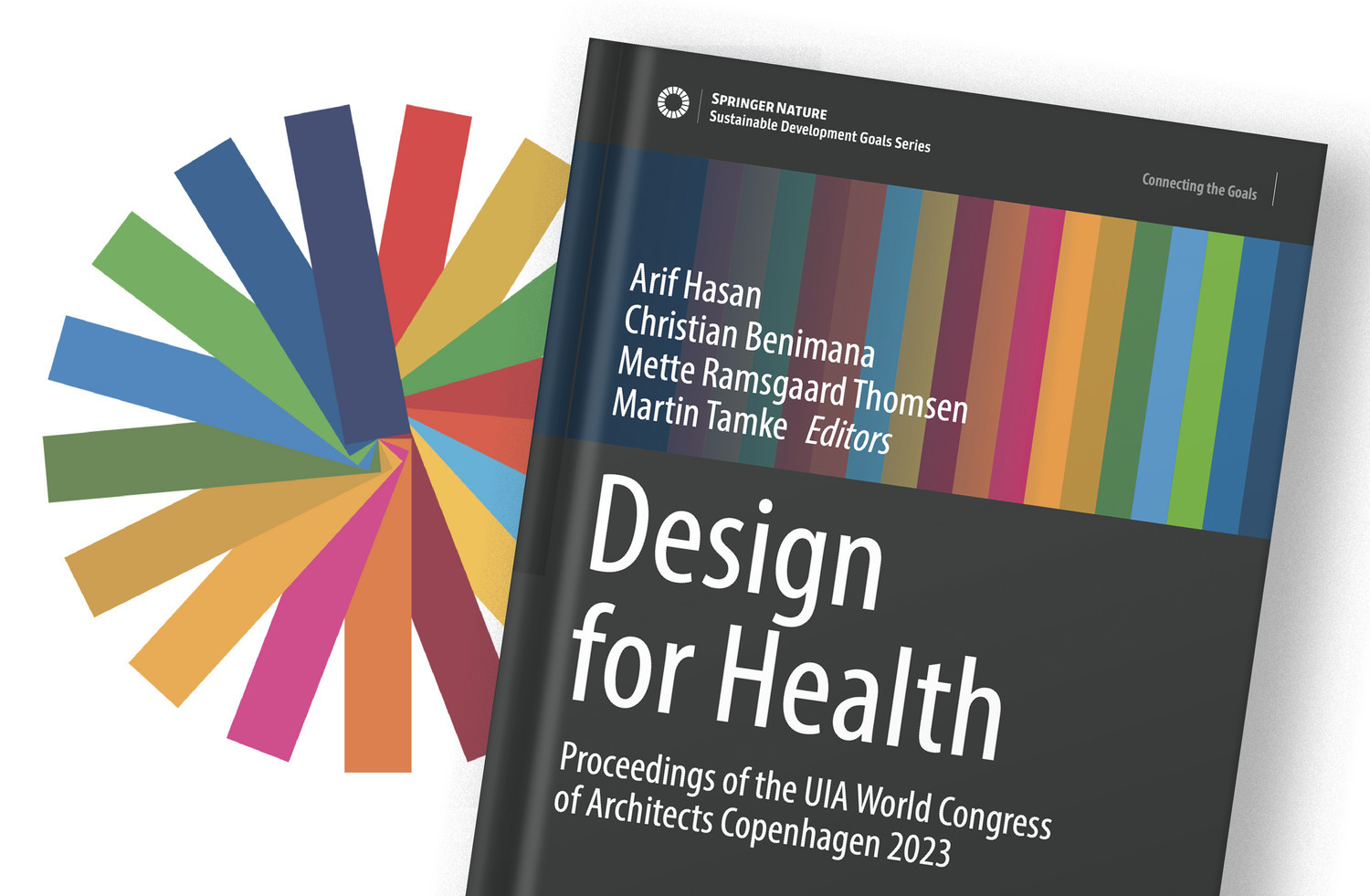Interview: How Can We Improve Our Cities for Better Well-Being?

In a recent interview with the Polish architecture magazine 'Architecture & Biznes', owner and partner Helle Juul discusses how cities and urban planning affect our health and well-being. She points out that urbanization and how we organize our built environment significantly impact our physical and mental health.
We have translated some key points from the interview below if you haven't mastered the Polish language yet.
"We as architects and designers have a responsibility. By creating 'THE URBAN HEALTH CULTURE OF THE FUTURE', we are shaping a new way of thinking about how we design and promote health based on human needs," says Helle Juul.
Juul also discussed the importance of combating loneliness in urban environments. "A simple gesture like inviting a neighbor to a social activity can have a significant impact on the sense of belonging in a neighborhood," she explains.
In her analysis of various urban planning projects, Juul highlights the importance of considering different scales, from the strategic level to the neighborhood and individual buildings. "Scaling is very important. The solution we choose at a strategic level will impact the neighborhood, how we go to school, and urban spaces and green resources," she says.
She adds: "When we started Future Urban Health Culture, I didn't know that loneliness is as dangerous as smoking 15 cigarettes a day, but I believe that this data and these figures show how much we need to look across sectors, professions, and disciplines. An interdisciplinary approach to everything we do in the future will ensure a deep balance of knowledge. When we talk to people who are not like us, we have the potential to create something innovative."
Juul concludes that future cities must be developed with a proactive approach, taking into account people's needs across borders, scales, and sectors. "We do not build for the sake of buildings, but for the sake of people," she says.
You can download the magazine here

